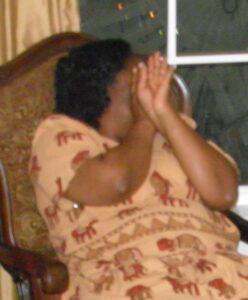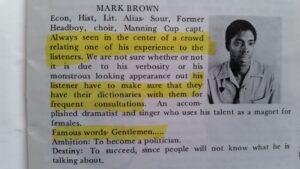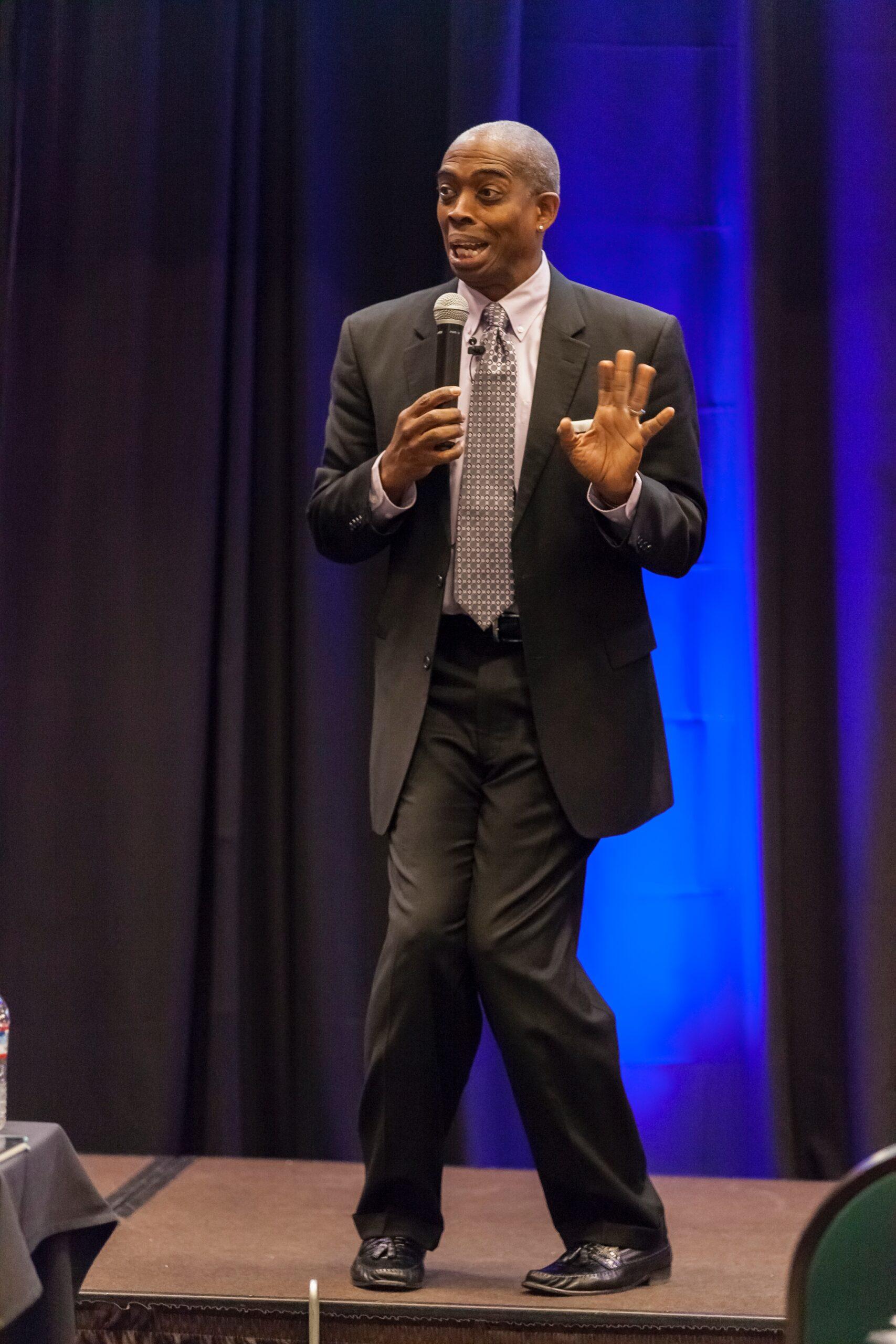Perhaps you’ve seen video clips. Maybe you were at a wedding or some other event and witnessed it, cringing. It’s possible that you have attended a meeting at work and squirmed in your chair as you watched someone struggle. Or maybe it’s happened to you. Your mouth is dry, tongue stuck to the roof of your mouth, lips stuck to your teeth, palms sweaty, face flushed. Your breathing gets shallow as your heart palpitates, and your knees feel wobbly. It’s happening. You HAVE to face an audience and you experience it; GLOSSOPHOBIA , ‘THE FEAR OF PUBLIC SPEAKING!’
There are ‘statistics’ being floated across the globe saying that the fear of public speaking is worse that the fear of death, that the fear of public speaking is second only to the fear of death, and that, “75% of all people experience some degree of anxiety or nervousness when it comes to speaking in public..” Truth be told, I’ve done a little research on this, and haven’t been able to conclusively verify ANY of those numbers. That makes me rather concerned because it’s possible for many to think that glossophobia is widespread and ‘normal’, which could be totally false. But that’s not my point; that’s another topic for another day.
Glossophobia is real. It’s a form of Social Anxiety Disorder (SAD) and is also known as Social Phobia. The Diagnostic and Statistical Manual of Mental Disorders (DSM–5), published by The American Psychiatric Association, defines Social Anxiety Disorder thus: “A persistent fear of one or more social or performance situations in which the person is exposed to unfamiliar people or to possible scrutiny by others. The individual fears that he or she will act in a way (or show anxiety symptoms) that will be embarrassing and humiliating.” I am not a psychologist, and I certainly don’t mean to minimize the experience and concerns of anyone who experiences this. However, it seems that what we describe as the fear of public speaking, is really the fear of public judgment, the fear of public embarrassment, and the fear of public humiliation. Based on the definition provided by the American Psychiatric Association, that’s the core issue, and in my experience, it’s helpful to identify what WE believe would cause us embarrassment. Let me say here that I am NOT a psychologist, psychoanalyst, psychotherapist or psycho-anything (and certainly not a psycho!) so I am not going to diagnose or prescribe treatment. I’m sharing what I’ve observed and experienced, in the hope that, should you deal with glossophobia, I might encourage you in some way.
If you don’t face glossophobia, you may think, “This isn’t for me”, but I ask that you hang in for a few minutes and read on. There’s a role for YOU!

Over the years I’ve learned that some speakers fear that they aren’t visually appealing, and I understand that. I’m not a fan of my facial profile, and I remember the first time I really thought about it. I was 12 years old and had walked to my younger sister’s all-girls school to meet her, so we could walk home together. Schools in Jamaica have a ‘campus’ feel, as opposed to enclosed American institutions, so all her classmates could see me as I waited outside her classroom, and I vividly recall saying to myself, “Don’t let the girls see your horrible profile with your protruding mouth and buck teeth!” So I turned away. That was more than 45 years ago, but the memory is fresh. For some speakers, my memory is their reality, EVERY TIME THEY SPEAK. Some are extremely concerned about their appearance, whether it’s their height, their clothes, their hair, their imperfections. And that’s only the beginning for some. It’s not just about how we look. Myriad other questions flood their minds, questions like, “Will they think this outfit isn’t good enough? What if my voice breaks? What if I’m not loud or assertive enough? What if I’m TOO loud? What if I forget what I’m supposed to say? Should I have done more research? What if they don’t like what I have to say? What if they don’t like my outfit? What if they don’t think my tie goes with this suit? What if they don’t think I’m qualified to talk about this?” That last question is VERY REAL for me.
This may come as a surprise to some. I will be 60 years old next year, and I do not have a university degree of any kind. Yet, I have found myself standing on stages facing high school educators, school board members, school district administrators, and university faculty and executives, on several occasions. Honestly, it is a bit of a thrill to see PhDs feverishly taking notes as I share the ideas and principles that life has taught me for all these years, because there was a time when, as a computer analyst at Reader’s Digest in New York, I would make excuses for not having lunch with my co-workers. They would often reminisce about their college and university years, laughing along at the familiar experiences that they all shared as part of college life. Not having shared any of those experiences, I thought it best to just shrink away because I was embarrassed to admit that I didn’t have a college degree. That embarrassment almost always leads to the question, “What will they think of me?” Thankfully, I received some good news along the way, after I began attending the Reader’s Digest Toastmasters Club. My first visit as a guest was in December 1992, more than 27 years ago. Immediately, I was intimidated by the quality of the speakers in the club. Here’s the thing…nobody INTENDED to be intimidating, but I didn’t fully understand that at the time. They were just trying to be their best, and I later understood that with encouragement, support, and hard work, I could BECOME just as good. In my experience, most people join a club within a few weeks of attending their first meeting. Some join immediately. It took me a while longer…about SIX MONTHS! Remember, I was the guy with ‘JUST’ a high school diploma. But I joined the club, in part because of the friendly, encouraging and supportive environment that Toastmasters International provides. There I learned the first valuable lesson.
YOUR AUDIENCE DOES NOT WANT YOU TO FAIL.
Nobody is saying, “I hope she messes up and that everyone laughs at her and judges her harshly”. Now I’m not being facetious or taking this lightly by any means; I want you to know that if an audience is in the room, for the most part, they’re there because they WANT to hear what you have to say. With that understanding, the only time I feel anything close to glossophobia is when I am unprepared. So here’s another valuable lesson.
PREPARE YOURSELF FULLY
With preparation comes confidence. Preparation eliminates the “Should I have done more research?” question, gives you a greater sense of control, and inspires confidence. The assurance that, “I know what I’m talking about, and my audience needs to hear it!” can have a calming effect. Preparation can make a big difference, but there’s one more idea that may seem unusual.

YOUR FEAR HAS NOTHING TO DO WITH YOUR COMPETENCE
Yes, that’s right. It took me SIX MONTHS to join my Toastmasters club at age 32, but in high school back in Jamaica, my fellow students saw me as…a SPEAKER! In the yearbook they wrote, “Always seen in the center of a crowd relating one of his experiences to the listeners.” Wait. WHAT? How is that even possible? Simple. In school in Jamaica, I was the soccer team captain, student council President and Head Boy. I was ‘somebody’, highly respected and very comfortable IN THAT ENVIRONMENT. It was easy for me to deliver an unscripted vote of thanks when the Minister of Education attended an event at my school. I was in MY HOUSE, a place where I had already been ‘judged’ in a very positive light. That was MY world. Reader’s Digest was not…at least not yet. And that leads to my final thought.
BUILD YOUR CONFIDENCE IN YOUR HOUSE
I’m not sure where YOUR HOUSE might be exactly. It may well be your Toastmaster club, but wherever that may be, you can master the art of speaking and build your confidence in a friendly environment.
Now you may not be battling glossophobia, and you might think, “This doesn’t apply to me.” If you’ve read this far, I thank you because you can help. Everyone who battles glossophobia needs a friendly face, a helping hand, and a listening ear. Let’s encourage, support and cheer them on. Let’s work together to fight this, because I believe YOUR LIFE TELLS A STORY, AND THERE’S SOMEONE OUT THERE WHO NEEDS TO HEAR IT!
Dream Big; Work BIGGER!

